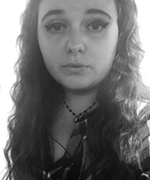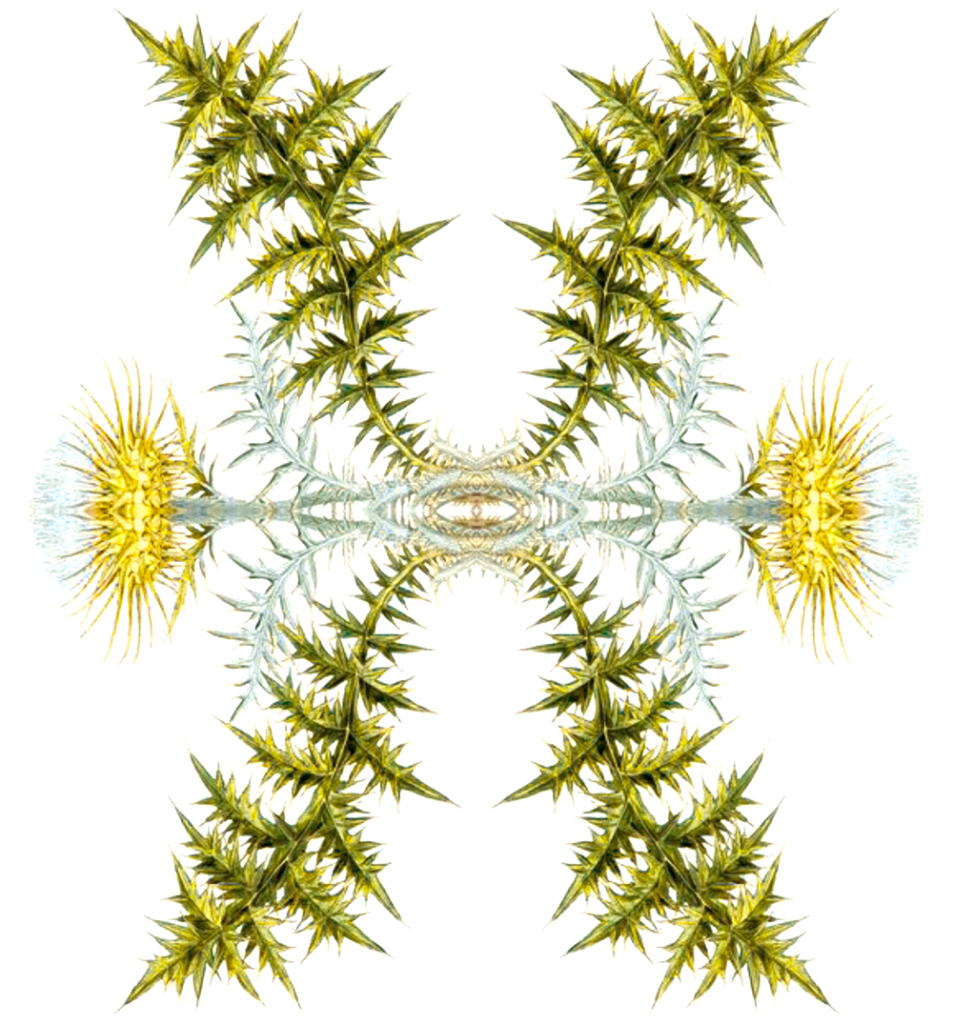By Anastasia Jill
I buried my daughter in an indigent plot with no marker, no headstone, and few guests. Not even a grain of earth was discernable from another to remember her place in the ground. My cousin Tracy stood at my shoulder, telling me how beautiful she would be.
“Ranu,” I corrected her. “Not ‘she;’ her name was Ranu.”
There was no priest, just a man in a mullet with a shovel held together with orange tape. I said a few words and she was gone, Tracy and I back on the road to her house, tombstones falling behind us like chipped teeth growing out of the ground.
As we walked, I watched the sky, its blue and yellow clouds shaped like the tablets in a bottle back home. Innocent enough, but the thought of my pills were more sinister because I had a plan. Knew what I was to do.
Later tonight, I would join my baby girl.
Tracy tapped then shoved my shoulder when she failed to grab my attention. “Are you doing okay?”
I put my hands in my coat pocket. “Of course, why wouldn’t I be?”
She stated the obvious: you lost a child.
“She never should have been my child in the first place.” The words felt sour like puss on my tongue, echoing the bitterness towards my own Ma—the woman who wouldn’t have a pregnant seventeen-year-old, who nearly coerced me into abortion. I’d told her off and walked out, say she’ll never see me or her grandchild again.
A saying of hers popped into my head, “Karma only kicks you in places you deserve it.”
We’d long since passed the cemetery, now we saw only gas stations and convenience shops as we moved towards the houses on downtown’s periphery. Tracy’s mother—my aunt—let me stay out of obligation. She wasn’t speaking to me, even though I was sleeping on her daughter’s floor.
The murk of my mind followed me off the street and in the door like a wayward cat or raccoon. A bright pink tablecloth greeted me, and a banner screaming, “It’s a girl!” above the stain where I bled onto the carpet. The shower itself was obligatory, the work of Tracy and my boyfriend, who somehow never made it to the hospital. Stale cake sat on the counter and my aunt was on the couch, swollen feet pushed up on the table from a day working the diner.
We exchanged pleasantries as we walked into the kitchen, discarding our coats and shoes by the counter.
“You hungry?”
“No.”
“Then drink,” she said, fixing a glass of milk with a flavor straw. This made me chuckle, and that made her mad.
“I just lost a kid and I’m drinking milk like some third grader.”
She sighed. “You’re still a kid too.”
I shook my head. “I am a woman.”
There was nothing to say to that. We sat and drank in silence. The dairy upset my stomach, and I wondered if that would make it harder to keep the pills down tonight. I was too aware of the glass in my hand, perspiring onto the counter. That lead me to my arms that were now and always inexorably empty.
I refused to hold Ranu the few seconds she was alive because I knew her little lungs would harden moments later. She died in the incubator, not knowing her mother’s touch. My arms are ghosts now; no bones, just leaky alveoli.
Some of these musings must have been spoken aloud because Tracy’s expression left me unsettled. Quickly recovering, she squeezed my hand. “Remember Slipper?”
Her mother’s wag of a cat that chewed holes in all my socks. “Yes, I remember Slipper.”
“When we brought her home from the vet to bury her out back, I was the one who had to carry her.”
I didn’t reply at first, because I didn’t know what to say.
She kept on. “Dead bodies are hard; did I ever tell you that?”
My teeth grinding on the inside bottom lip. “Are you comparing my daughter to a cat?”
Her gaze was soft. “Don’t get mad at me but…”
“But?”
“Maybe it’s better off this way, you know?”
No, I didn’t know, because I was a beast who deserved this pain, but I didn’t have the strength to take it.
Tracy stroked the back of my hand. “I know this isn’t fair.”
What wasn’t fair? I was living, and my daughter couldn’t.
“You can speculate forever. If you’d held her dead, you wouldn’t forget it.”
The hollowness returned, milk turning over weakly in my belly.
My aunt appeared in the doorway, lighting a cigarette, debating if she would interrupt or not. My blood went hot under her scrutiny, the same glare following me for months after I decided against an abortion.
I was a dirty girl, even more so because after all that, I wasn’t a mother.
She asked Tracy to give us the room and she promptly obliged, leaving the two of us alone with the smell of smoke. I realized this was the last time I would see this woman, and I forced myself to make eye contact.
Despite her anger, she offered me a look whispering an authentic, “I’m sorry.” But her apology meant nothing, coming far too late. No one in this family knew the pain of losing a child. I couldn’t explain it, nor would I want to for people who were against my daughter from the start.
When my aunt actually spoke, all she said was, “You’re so young.”
My hands were wrapped around a card—a gift from some neighbor, a picture of pink teddy bear hugging three heart shaped balloons. “I’m not young anymore,” I said. I can’t be after this.”
The subject changed abruptly. “Your Ma called while you were out.” She said ‘out,’ like I was at the movies with friends and not putting my child in a wooden box.
“I don’t want to.”
“But you should.”
“It’s been a long day.”
The quiet was tedious, and I played with my empty glass just to fill the space.
“This is over now,” my aunt said after a while. “Things can go back to normal.”
There was no more normal. My child is under county issued land. I couldn’t go back to my life before if I couldn’t foresee an after. It wasn’t possible, when in Tracy’s room, there was a crib we’d picked up a garage sale, baby clothes and stuffed animals around the floor. Bottles without price tags and saddle shoes without receipts had no use aside from the reminder my life was now bare.
The only thing truly left were the pills, a mix of poison and benzodiazepines that would put me in heaven with my daughter, now light and angel wings. That’s all that was left for me, in a world permanently grave soil gray, a void of all beauty.
Conceding was easier. I wouldn’t be around to reap the damage.
The pills called me. “I’m going for a walk. I’ll call her when I get back tonight.” I didn’t stop to get my coat or shoes, but went upstairs to grab the bottle before running out the door. Up and down the block, I tried to talk myself up, find a bus station or a bathroom somewhere and get it over with. At some point, my footsteps got heavier. Not much later, I was crying, big, ugly sobs that left my neck stinging like I’d been smacked with vapor.
My pacing went unnoticed until a voice stopped me, asking if I was alright. It was Mr. Aom, one of the men who lived up the street with his wife and children. Through I knew his family from a distance, they still showed up for my baby shower. His wife made most of Ranu’s dresses, but he cooked all of the food cake for the shower.
Today, he was just sitting with a sandwich, enjoying the glowering sunset. When I didn’t respond, he waved me down, opening his fence to let me in. He asked again if I was okay, but saw my answer was a lie.
He put his hand on my shoulder, saying, “C̄hạn næ̀cı ẁā lūks̄āw k̄hxng khuṇ s̄wy.” He smiled at me. “Your daughter is very beautiful.”
He guided me to his front porch, to one of the rocking chairs he had out. Cutting his sandwich in half, he placed it in my lap and sat down in the chair adjacent. I was still crying as he began to eat.
Asking again if I was okay, I told him honestly, “No, I’m not.”
Lifting his sandwich, he gave a comforting smile. “You’re sad. But me? I’m hungry.”
I chuckled and picked at the bun while he gorged, giving the occasional comment about me or my daughter.
“She’s not my daughter anymore. I don’t think she ever was.”
He repeated again, “She was beautiful.”
“I don’t know about that. I never saw or held her.”
Judgement never came; instead, he looked at me thoughtfully. I couldn’t meet his gaze so I stared at his yard, grass rich and green, not a hint of dirt in sight. Only indigo flowers, a tree that sat over the roof of the house.
He pointed to the flowers, then brought the finger to his own forehead. “My father, he couldn’t see well, but always used to say to my sister, ‘you are the most beautiful flower from the garden.” He pointed to me. “Her and you…and your daughter as well.” He took another bite. “She is beautiful because you are her mother.”
He kept saying “is,” as if she were still alive. I reminded him of the fact this wasn’t true. Finishing his food and licking his fingers, he said, “A child is never gone as long as she has a mother living happy with her memory.”
“I don’t think I can be happy anymore.”
In that moment I wanted to tell him the truth, just to have it out and spoken of the plans I had for myself tonight. He might not have understood, and I didn’t want to explain that things weren’t that simple for me.
“I named her Ranu. It means heaven.” Deep breath. “My family thinks that was a mistake.”
“She is your child. That is no mistake.”
“My family thinks so. And the father took off.”
“You wanted her to have life. That has to mean something for you right now.”
My bare feet stroked the wood of his porch, leaving my soles dark and sooty, and the food sat uneaten in my lap. He gave me a smile showing off his missing teeth, but his arms were strong against the rest of the chair.
“I didn’t want to hold her.” The words shocked me as they came out my mouth.
“That kind of heaviness isn’t something you forget.” He sighed. “You are far too young for that.”
“I feel terrible.” Like I don’t deserve the life she didn’t get to live.
Still, he smiled. “Life doesn’t end for you, not know.”
Maybe he did understand; I was wearing my sadness like ankle weights. I reiterated that happiness didn’t feel possible again.
Those arms reached to me, serious, until his hands pinched my cheek. “She—Ranu would want you to be happy. Live, and be happy.”

Anastasia Jill (she/they) is a queer writer living in the Southeast United States. She has been nominated for Best American Short Stories, Best of the Net, and several other honors. Her work has been featured with Poets.org, Pithead Chapel, Contemporary Verse 2, OxMag, Broken Pencil, and more.

